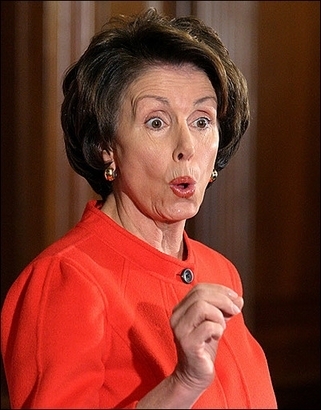Charlie Rangel, convicted of eleven ethics violations – the most ever found against any member of Congress – was resoundingly re-elected, getting 80% of his district’s vote.
After 40 years representing these folks, you can’t conclude he was an unknown commodity. Granted, the conviction occurred after the election, but the charges were well publicized.
Has Charlie Rangel’s leadership produced life so grand in Harlem that flagrant and persistent unethical behavior by their Congressman means nothing to its residents?
The national poverty rate is around 14%. In the 15th district of New York, Charlie Rangel’s district, it’s 24.3%. The child poverty rate is 30.9%.
Whatever it is that Harlem voters find so attractive about Mr. Rangel, it’s hard to conclude that quality of life is something they feel they owe to him.
But let’s think about this in a broader context.
Charlie Rangel is a founding member of the Congressional Black Caucus.
There are now 41 House members who belong to the Caucus. In the most recent elections, 37 of them ran as incumbents and all regained their seats handily. The four seats that were vacated were easily captured by new black Democrats.
That’s a 100% return rate. These Black Caucus Democrats recaptured their seats getting an average 75% of their district’s vote.
In a year when 62 Democrats were defeated – a 25% reduction in the bloc of 252 Democrats in the current Congress – the reduction of the bloc of 41 black Democrats was zero.
The average poverty rate in the districts of Congressional Black Caucus members is 20.3% – six points higher than the national average. The average child poverty rate in these districts is 28.8%.
So, as in Charlie Rangel’s case, it’s hard to conclude that these Black Caucus Democrats are being sent back to Washington by large voting margins, year after year, because they are delivering such fine lives to their constituents.
A problem here is that elections in Black Caucus districts are not exactly what might be described as free and open.
About three quarters of these districts are Majority Minority districts, hard wired to guarantee election of blacks. The remaining districts are also gerrymandered through various schemes flowing from collusion of political parties and state legislatures.
The initial provision of the Voting Rights Act, passed in 1965, to deal with voting problems was structured to counter schemes going on in the South – literacy tests, etc – rigged to keep blacks from registering and voting.
But by the 1970’s, this provision morphed into district gerrymandering. What was initially meant to protect the voting rights of blacks evolved into provisions to guarantee the election of blacks.
The result of this overall process is a bloc of politically manipulated districts which, coupled with other institutional biases protecting incumbents, virtually guarantees the election of black Democrats.
You might say that rigged elections might be justified if it meant better lives for black constituents.
But given that these districts are largely characterized by persistent poverty and some of the worst public schools in the country, this is a conclusion that’s hard to reach.
Earlier this year, the NY Times profiled the prodigious money raising prowess and dubious ethics of the Congressional Black Caucus Foundation. The Times editorialized, “Of all the money machines shaving ethical corners, few rival the Congressional Black Caucus…..the caucus spends far more on gala entertainments and golf outings than on the scholarships that billboard its charity drives.”
Political markets are like commercial markets. The absence of competition results in shoddy products.
When we send American soldiers into harm’s way abroad to fight for free elections, perhaps we should spend more time considering the quality of our own democracy at home.

COMMENTS
Please let us know if you're having issues with commenting.